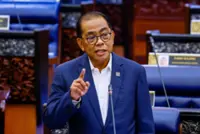IT’S time for the country’s tertiary students to be given greater autonomy, especially when it comes to financial matters.
Currently, student movements in public institutions of higher learning (IPTA) are subjected to strict regulations and are often limited in their ability to generate income and bring about change.





